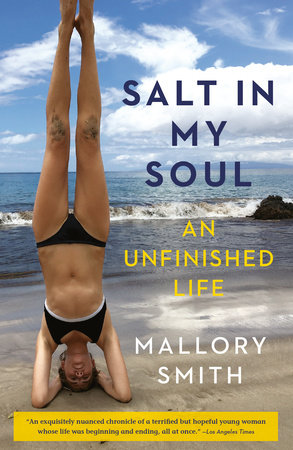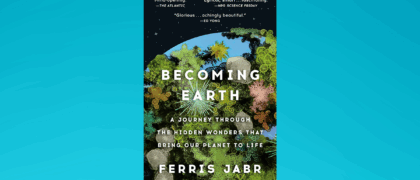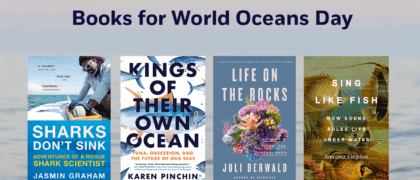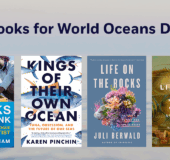Contributed by Diane Shader Smith, mother of Mallory Smith, author of Salt in My Soul: An Unfinished Life
Literature and medicine have long been intertwined. In the early 2000s, Dr. Rita Charon helped formalize this intersection as a discipline through her work at Columbia University and her book, Narrative Medicine: Honoring the Stories of Illness (2006). Since then, the popularity of incorporating narrative in patient care and medical training has continued to rise. Connecting care providers and patients through sharing and listening, narrative medicine promises to imbue medical practice with humanism, transforming exam rooms, consultations, and daily rounds from impersonal, standard procedures to individualized, intimate conversations.
As a patient, I want you to know me, to understand what led me to be in your exam room. As a person, not just a set of symptoms.
Hospitals increasingly promote patient-centered care, but this remains at odds with the current healthcare system. Mounting pressure for providers to bill more while spending less time with each patient dehumanizes care by regarding patients as data points, not people. Patients are also often excluded from discussions about their diagnoses, treatment plans, and prognoses. This is why patient narratives should be a required part of medical education.
Salt in My Soul: An Unfinished Life by Mallory Smith, my daughter, is a posthumously published memoir that tells the story of a patient with a life-threatening respiratory illness. Mallory was diagnosed with cystic fibrosis at the age of three, a disease that, with its attendant treatments and multi-system problems, imposed a maturity on her, forcing her to learn a lot about her body, ask hard questions of her future, and advocate for herself at school and in the hospital.
Between the age of 15 and her death at 25, she diligently kept journals, writing more than 2,500 pages that chronicle her thoughts and observations, experiences and feelings, as she navigated life with chronic illness. She wanted her writing to be shared and had an intuitive understanding that her insights could help others living with or caring for those with conditions that are visible or invisible, chronic or episodic, physical or emotional.
I’m back in the hospital thinking about what I want:
I want to wake up in the morning and take a deep, full breath.
I want that breath to fill me up, to imbue me with joy and energy, not to irritate or pain me and set off a spasm of coughing. I want to be able to do the things that I dream of while I sleep, things that are taxing in reality: hiking, running, biking, swimming, diving, kicking, screaming, dancing, laughing, jumping, falling, leaping, soaring. . . .
I want to trust that my body will be able to help me, not hinder me, in living out my dreams. . . .
I want to live.
There’s a need for compelling human-centered narratives about medicine and medical experiences that avoid oversimplification, make space for conflict, and address broader issues.
Salt in My Soul has been taught in medical schools and hospitals because it offers the patient perspective on difficult topics such as healthcare inequity, invisible illness, and the ongoing opioid epidemic, among other issues. Readers will also relate to this text as Mallory navigates increasingly familiar challenges of young adulthood, including body image and mental health.
Furthermore, as those entering the field of healthcare will need to be on the frontlines of the ever-evolving Covid-19 pandemic, Mallory’s writing also illuminates the experience of respiratory impairment, helping to explain what it feels like when breathing is a burden, when your future becomes uncertain, when you lose people you love.
Medical and nursing school students, residents, and fellows attest to the power of Salt in My Soul:
“Salt in My Soul should be a must-read for the medical community in general, but especially for medical students, residents, and fellows. Mallory’s powerfully moving personal account of her brave battle with chronic illness and disability provides raw insight for the next generation of physicians, the future of medicine. Her journal entries inspire us to nurture humanism in our interactions with future patients.”—Louisa Lu, Yale School of Medicine Fulbright Scholar, Doris Duke International Clinical Fellow, UCSF Visiting Scholar
“I read Salt in My Soul last month and it taught me more about the patient experience than I learned in medical school, residency, and so far in fellowship.”—Dr. Alexandra Kass, Pulmonary Fellow, Boston Children’s Hospital
CF does do a lot of taking. It’s a complex, unpredictable, irreversible, progressive, painful, suffocating, choking weed of a disease and it’s okay to hate it. . . . At the same time, it does give.
It’s given me a second home in the hospitals where I’ve had some of the best and worst moments of my life. I graduated college, officially (finished my last final), in the hospital. I’ve spent birthdays and holidays in the hospital. I’ve had panic attacks in the hospital. I’ve struggled to breathe in the hospital. I’ve forged powerful relationships with doctors, nurses, and ancillary support teams in the hospital. I’ve been grateful for the care I’ve gotten in the hospital. I’ve seen the strength of my family tested in the hospital. I’ve seen my own strength tested in the hospital.
Mallory reminds us that doctors and nurses play a crucial role in the life of a patient, and that every single healthcare provider has the power to make patients feel safe, understood, and cared for. Reading Salt in My Soul not only provides a critical patient narrative, it also illuminates the ways our healthcare system can and should be improved with unwavering empathy and broader recognition that patients, like providers, are people first.






